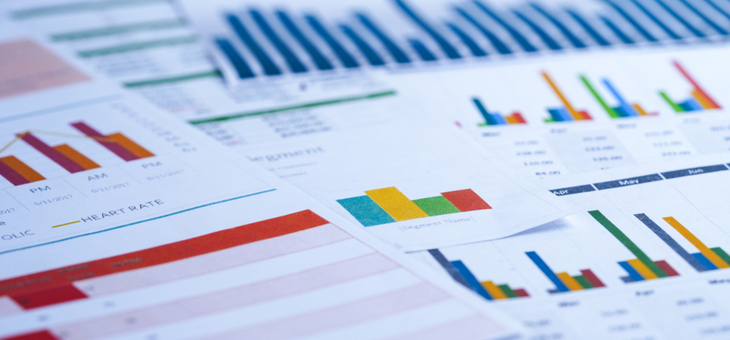The pandemic kept more Australians alive and demand for second-hand cars went through the roof.
The business reporting season reveals much about Australians’ financial behaviour. Public companies listed on the Australian Securities Exchange (ASX) report their financial results to shareholders twice a year, and many did so last week, for the period between July and December 2020. The results open a window into our lives.
“Corporate Australia is shrugging off the gloom of the COVID-19 pandemic, delivering improving profits and looking to the future with more optimism,” was the verdict of the Australian Financial Review (AFR).
“Results this week from the three big iron ore miners, big banks, healthcare companies and a swathe of retailers and fast-food firms serving the stay-at-home lifestyle point to a corporate sector returning to health after 2020s lockdowns and restrictions.”
The economy boomed because we spent money on our homes; cash usually spent on overseas travel and restaurant visits shifted to stay-at home renovations and DIY projects, propelling retailers in those sectors.
AFR columnist Chanticleer said a string of blue-chip companies delivered better than expected numbers in a bumper week of earnings.
“According to UBS equity strategist Pieter Stoltz, the ratio of companies beating profit expectations to those missing is 2.6, the highest on record,” Chanticleer reported. “Not only have the doomsday scenarios failed to materialise, but we’re seeing surprising strength in even the most affected sectors.”
Business Insider Australia identified some key insights from the reporting season.
First, the pandemic kept more Australians alive. Measures taken to limit coronavirus outbreaks and keep us at home reduced deaths from other causes including flu. Australian Bureau of Statistics figures show deaths up until October “remained below historical averages”.
Read more: An economist’s predictions for 2021
Traditional retailers, such as shopping centres, were hit hard by lockdowns. Vicinity Centres, one of the largest owners of Australian shopping centres in the country, made a net loss of $394.1 million in the first half, a long way from the $243 million profit it turned over in the same period previously.
And demand for second-hand cars soared at online marketplace Carsales as commuters shunned public transport over social distancing concerns.
Read more: Economic forecasters are suddenly optimistic
Reporting season winners
- Wesfarmers, which owns Bunnings, Officeworks, Kmart, and Target, reported a 23.3 per cent rise in interim net profit to $1.39 billion as Australians spent big on hardware, gardening supplies, home office equipment and homewares.
- Domino’s Pizza experienced a 41 per cent profit growth in the December half and its profits passed the $100 million mark for the first time.
- Super Retail, owner of sporting goods chain Rebel, Supercheap Auto and the BCF outdoor equipment and camping chain produced a 139 per cent rise in profits to $177.1 million.
- The trend towards domestic road trips favoured car parts and accessories group Bapcor, which runs 1100 outlets under the Autobarn, Burson, AutoPro and Sprint brands. Bapcor celebrated a 50 per cent spike in profits to $67.7 million.
- JB Hi-Fi and its appliances business The Good Guys prospered due to consumer spending shifting away from air travel to upgrades of technology and home investments. Net profit jumped 86.2 per cent to $371.7 million as Australians invested in laptops, appliances, games, and mobile phones.
- The Coles supermarkets chain produced “super-profits” from Australians staying at home because of COVID-19 restrictions.
- Medical glove and protective suit maker Ansell is urgently expanding its production capacity to keep up with demand from hospitals, governments, and pharmaceutical companies. It is incorporating eight new production lines to keep up with “extraordinary” demand, which it expects to remain strong even after the pandemic is controlled because of the heightened awareness for first-rate hygiene practices and the potential demand for annual vaccinations as the virus mutates.
- Blood products company CSL reported a 45 per cent rise in net profit to $US1.8 billion in the six months to 31 December, with its Seqirus flu vaccine in demand. CSL is manufacturing the AstraZeneca COVID-19 vaccine in Australia.
Read more: Australians stockpile $200 billion in savings
Reporting season losers
- Insurance company QBE withheld dividends and posted a $2 billion loss as COVID-19 and bushfires “crippled” earnings.
- Casino earnings were hit hard by border closures and lockdowns. Star Entertainment’s interim net profit after tax was down 33 per cent to $51 million and Crown Resorts scrapped its dividend after posting huge losses.
- Travel agencies and airports suffered due to travel bans and closed borders. Webjet lost $132.2 million in the half, after recording a $9 million profit in the same period a year earlier. Corporate Travel lost $36.4 million compared to a $32.9 million profit in the previous corresponding period.
- Funeral companies are struggling due to social distancing restrictions, and a rise in bad debts, as families struggle to pay for funerals. Invocare recorded a $26.5 million pre-tax loss.
Are you bullish about Australia’s financial recovery? Do good corporate results affect your wellbeing or lifestyle?
If you enjoy our content, don’t keep it to yourself. Share our free eNews with your friends and encourage them to sign up.

